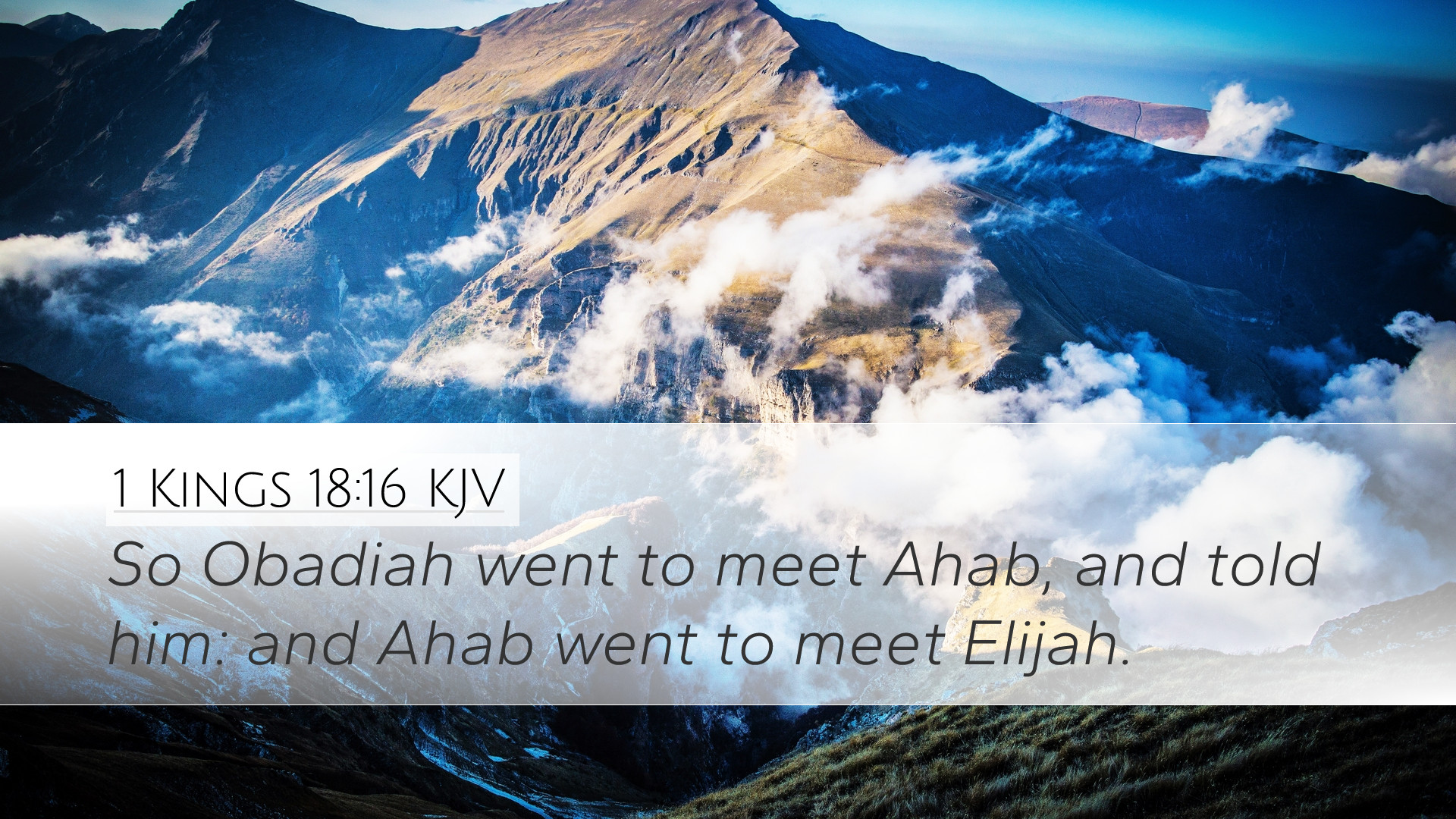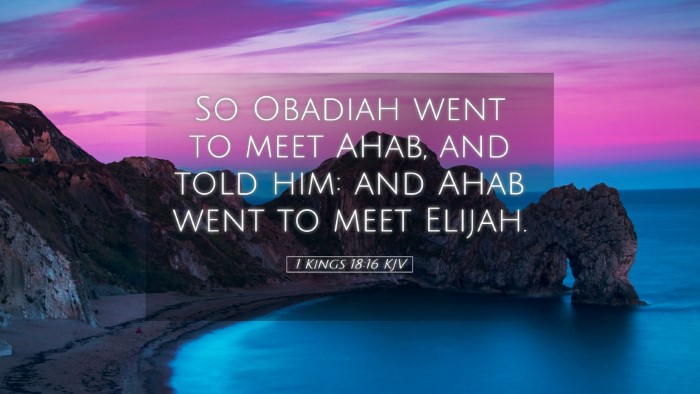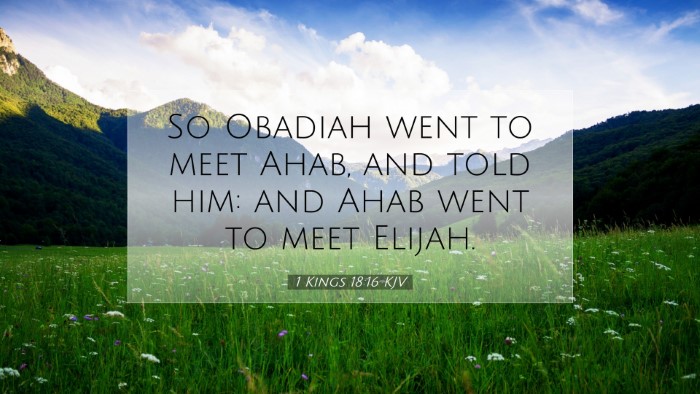Commentary on 1 Kings 18:16
Verse: 1 Kings 18:16
"So Obadiah went to meet Ahab, and told him; and Ahab went to meet Elijah."
Introduction
The passage in 1 Kings 18:16 serves as a pivotal moment in the narrative of Elijah, the prophet of God, and Obadiah, a faithful servant of King Ahab. This verse encapsulates the themes of conflict between the true worship of Yahweh and the idolatrous practices introduced by Jezebel. The dynamics of power, faithfulness, and divine purpose are intricately woven in this encounter. This commentary aims to elucidate the significance of this verse, drawing insights from various public domain sources.
Contextual Background
- Historical Context: The backdrop of this passage is set in a tumultuous time for Israel, where the worship of Baal had been institutionalized under Ahab's reign, heavily influenced by Queen Jezebel.
- Character Study:
- Obadiah: Not only a steward in Ahab’s household, but also a devout follower of the LORD, he had taken great risks to protect the prophets of Yahweh from Jezebel's purges.
- Ahab: As the king, Ahab represents the political authority and its corruption through idolatry, which stands in stark contrast to Elijah’s prophetic mission.
- Elijah: A bold prophet who challenges the status quo and serves as a mouthpiece for God amidst a spiritually desolate landscape.
Analysis of the Text
1. The Role of Obadiah
Matthew Henry notes how Obadiah exemplifies loyalty and courage. His willingness to confront Ahab on behalf of Elijah demonstrates the often invisible yet critical role of faithful individuals in the service of God amid a corrupt society. Obadiah’s success in hiding the prophets while serving a wicked king highlights his dual-life of faithfulness to God in a politically charged environment.
2. The Commissioning of Ahab
When Obadiah reports to Ahab about Elijah’s presence, we see a significant shift in narrative focus. Albert Barnes draws attention to the king's immediate response to meet Elijah, indicating a sense of urgency and perhaps desperation as the drought had ravaged the land. This meeting is essential for showcasing the impending confrontation between the prophet and the king.
Theological Implications
- Divine Sovereignty: Elijah’s arrival marks the certainty of God’s sovereignty over Israel’s situation. Adam Clarke emphasizes that God orchestrates events according to His will, and the meeting between Ahab and Elijah is not merely a political maneuver but a divine appointment.
- Faith Under Pressure: The passage also illustrates the theme of faith under pressure. Obadiah, while serving an idolatrous king, manages to remain steadfast in his worship of Yahweh. This duality is significant for believers, who often find themselves in secular environments.
Practical Applications
- Faithfulness in Leadership: Leaders today must navigate complex environments where moral and spiritual convictions are challenged, much like Obadiah did. His narrative encourages contemporary leaders to remain steadfast in their faith.
- Boldness in Proclamation: Elijah’s courage to confront Ahab represents the call to boldness for all believers. This passage challenges Christians to speak truth to power, regardless of the potential consequences.
- God’s Provision for His People: Reflecting on the provision for the prophets, this passage underscores the assurance that God faithfully looks out for His people, even when they are persecuted or marginalized.
Conclusion
1 Kings 18:16 encapsulates a critical moment in the story of Elijah, highlighting the tension between royal authority and prophetic ministry. Through the character of Obadiah, we learn about the complexities of living out faith in a hostile environment. As pastors, students, and theologians engage with this passage, they are invited to reflect on their own contexts where faithfulness may require courage, action, and trust in God’s sovereign plans.
References from Public Domain Commentaries
- Henry, Matthew. Commentary on the Whole Bible.
- Barnes, Albert. Notes on the Old Testament.
- Clarke, Adam. Clarke's Commentary on the Bible.


